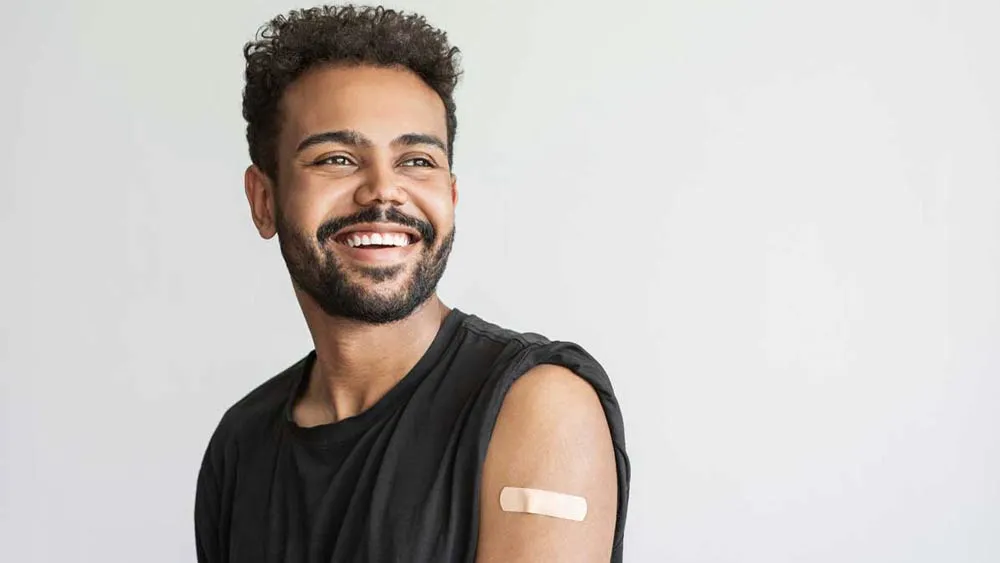August 28, 2016
Suffering, Stress in North Carolina's Anti-LGBT Climate
Maria Dominguez READ TIME: 4 MIN.
Many sources, including qnotes, have documented the economic and political impacts of House Bill 2 (HB2), also known as the Public Facilities Privacy and Security Act. But setting aside the games of money and power, the mental and emotional impact of such controversial legislation is also considerable. Members of the LGBT community in North Carolina, particularly trans* North Carolinians, may be especially vulnerable while this law remains on the books.
HB2, signed into law in March, dictates that people use the bathrooms and changing rooms for the gender designated on their birth certificates. Critics far and wide have pointed out that this discriminates against trans* citizens, who now face a difficult choice: follow the law, or follow their hearts.
This choice is made more painful by the rhetoric promoted by supporters of the law, who claim that it is a "commonsense" measure to ensure that sexual predators stay out of bathrooms. The alignment of trans* people with bathroom creepers is one that has enraged many LGBT advocates.
Among these were a group of more than 150 mental health professionals who called for a repeal of HB2 in an April letter to Gov. Pat McCrory.
"The only real threat is to the safety of transgender people who can't use appropriate bathrooms," the group wrote. Community members agree:
"I am not a sex offender, a pedophile or sexual predator, but my governor and my state says that I am," wrote local transgender woman Janice Covington Allison on justaskandtell.com. Allison's website names over 100 Charlotte-area businesses with gender-inclusive restrooms.
Although some local businesses have shown solidarity with the LGBT community, the sense of conflict still has significant effect.
"Many trans* people struggle with isolation," Mel Hartsell told qnotes upon founding the group Trans* in the City in August of 2013. Hartsell is a social worker and community activist who identifies as genderqueer or gender-fluid.
"Living under oppression legally, experiencing microaggressions, and living with direct violence takes its toll," Hartsell said in a recent interview. "Being told continuously by the state and country in which you live that you aren't worth protection under the law and, worse, are a danger to the public, is detrimental to a community that is already under so much distress. That distress is compiled when you add aspects of intersectionality such as being trans and especially trans people of color."
Since the advent of HB2, the isolation that trans* individuals face has deteriorated into a public vilification that exacerbates the mental distress already too common in members of the LGBT community.
The National Alliance on Mental Illness (NAMI) cites just this type of mental distress. The organization's North Carolina office released a statement shortly after HB2 was signed into law, pointing out that LGBT people show "significantly higher rates of suicide attempts, largely due to societal discrimination and stigma. NAMI North Carolina opposes HB2 and any legislation that further alienates or discriminates against any person."
More and more mental health professionals are condemning HB2 for creating a hostile environment for North Carolina's LGBT citizens. Octavio N. Martinez, Jr, psychiatrist and board member of Grantmakers in Health, wrote a blog defending the organization's choice to move their annual conference out of North Carolina:
"There is no definition of 'mental wellness' that can abide the psychosocial harm of the kind of discrimination that the HB2 law enshrines," Martinez explains. "Stigma, whether perpetuated by family or ratified by a legislature, encroaches on emotional well-being and the ability of people to live whole and happy lives."
The facts speak for themselves. As reported by The Trevor Project, "Nearly half of young transgender people have seriously thought about taking their lives, and one quarter report having made a suicide attempt."
The trans* population is already at risk due to generations of hate and ignorance. HB2, in a modern day that should be relatively more enlightened than past ages, is just another conservative attempt to return the state to the stone age.
Luckily, LGBT advocates are fighting back in more ways than one. Not only have countless businesses, organizations and individuals lodged protests, but still more organizations have formed to provide support to LGBT citizens who may struggle with mental health. Although there are many resources to help, ultimately the fight against mental health issues begins with the individual.
"I think it's important, as LGBTQ people, that we recognize the pressure we are constantly under from all angles and work to protect ourselves," Hartsell pointed out. "So, be aware of the underlying cause of a lot of the mental health issues in our community: minority stress."
Being self-aware is the first step to recovery. Learn to recognize the signs of depression and anxiety, in self and others. Once recognized, there are many resources available to address these issues.
"We must be aware of our community members, especially those who are most vulnerable," Hartsell said. "Check in on your friends and be there for them."

 Copyright QNotes. For more articles from QNotes visit
Copyright QNotes. For more articles from QNotes visit 
